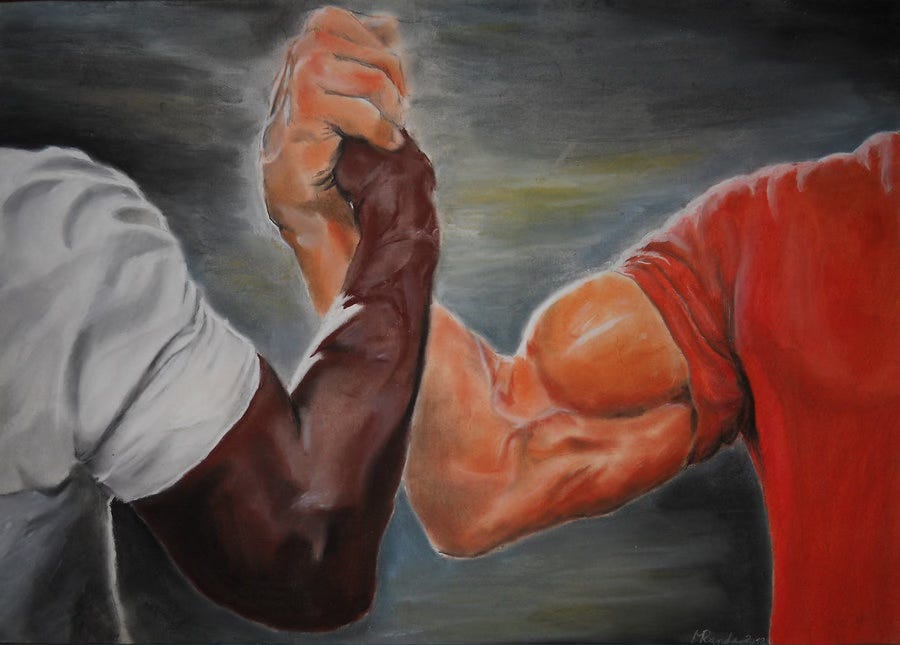Don’t forget: pre-order both A Woman Underground and Light of the Mind, Light of the World, then DM us a screenshot of your receipt for a chance to get both books for free!
To Andrew Klavan
c/o The Right Side of the Bell Curve:
You raise an important point that I think we should dwell on for a second. In political history, there really are villains. Hitler? Villain. Lenin? Bad guy. Ditto Stalin. You don’t want to end up generating mass starvation or dispatching your minions to torture innocents when you could just, you know...not do that.
But when it comes to intellectual history, the key figures are rarely genuine villains. At least, not in the same way as the tyrants and the killers. There are deceivers and petty charlatans, that’s true—people like Ibram X. Kendi and Robin DiAngelo who put on a shabby vaudevillian imitation of scholarship for the benefit of their eager dupes. Like all scams, it’s dishonorable. But it doesn’t really count as thinking. Just a passing dime-store knock-off.
Real enduring thinkers—even the ghastly ones like Nietzsche, say, or Marx or Freud—may raise ideas with dire consequences. They may be culpably disconnected from those consequences or unconcerned by them. But usually they’re only working out the next step in a chain of logic that was begun long before them, a step someone was bound to take.
When Marx and Engels wrote that the specter of Communism was haunting Europe, they meant that the jarring shock of industrialization had made the nagging idea of revolution hard to dispel. When Nietzsche announced the death of God, he was only saying out loud what others had been privately coming to suspect—that science was making it possible to live as if only matter was real. Truly consequential writers don’t carve out new forms so much as they give names to shadows.
You may say, well, woe unto him through whom the offence shall come. And you may be right, but the issue may also be moot at this point. It’s not in our power to visit punishment on Foucault for his thought crimes, and I’m afraid on those charges he’s up against a juster tribunal than we could mount. Conservatives love to write retrospectives about “where we went wrong.” But those are only useful insofar as they help us figure out where to go next. The relevant questions are less about whom to blame than about how to proceed.
And it seems like in the arts as well as in the academy, the task before us is a kind of reconciliation. I wrote in my essay that top-notch minds are coming around to the same traditions of faith as the workaday parishioner, after decades or even centuries of alienation between the rubes and the toffs. You responded that artists have been forced to choose for a while between pop candy floss and ponderous tedium.
If we drop our pretensions, though, and put away our pride, we ink-stained wretches might use our gifts in this era to reinvigorate the heart truths known to ordinary men and women, rather than dissolving them in an acid bath of deconstruction. A new specter is haunting the West—the specter of revival. And drawing it out, giving it a name—well maybe that’s our place in intellectual history.
Love,
Spencer






All those who are giving it a name and creating spaces for this movement to flourish are certainly living out a calling. The Klavan duo, JBP, even Russell Brand…it’s a beautiful thing to see.
"Truly consequential writers don’t carve out new forms so much as they give names to shadows." That is consequential writing.